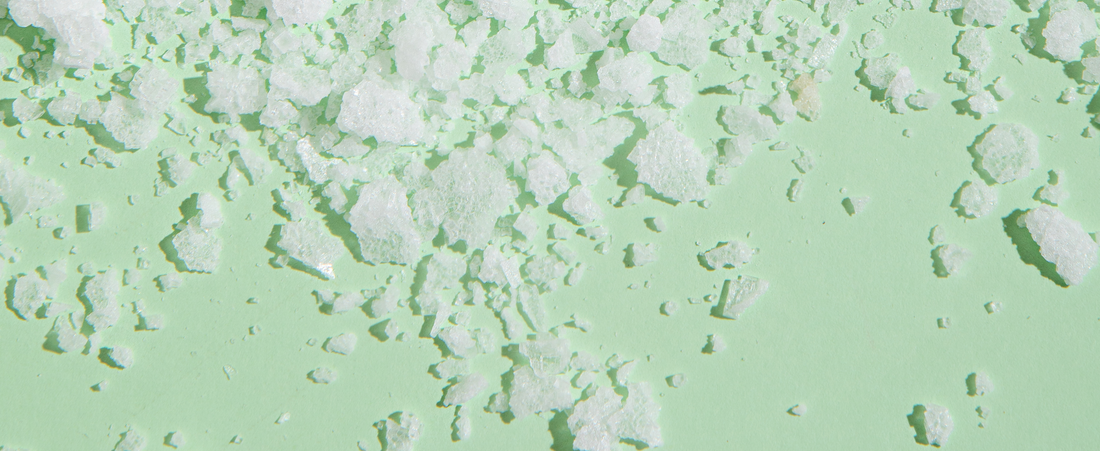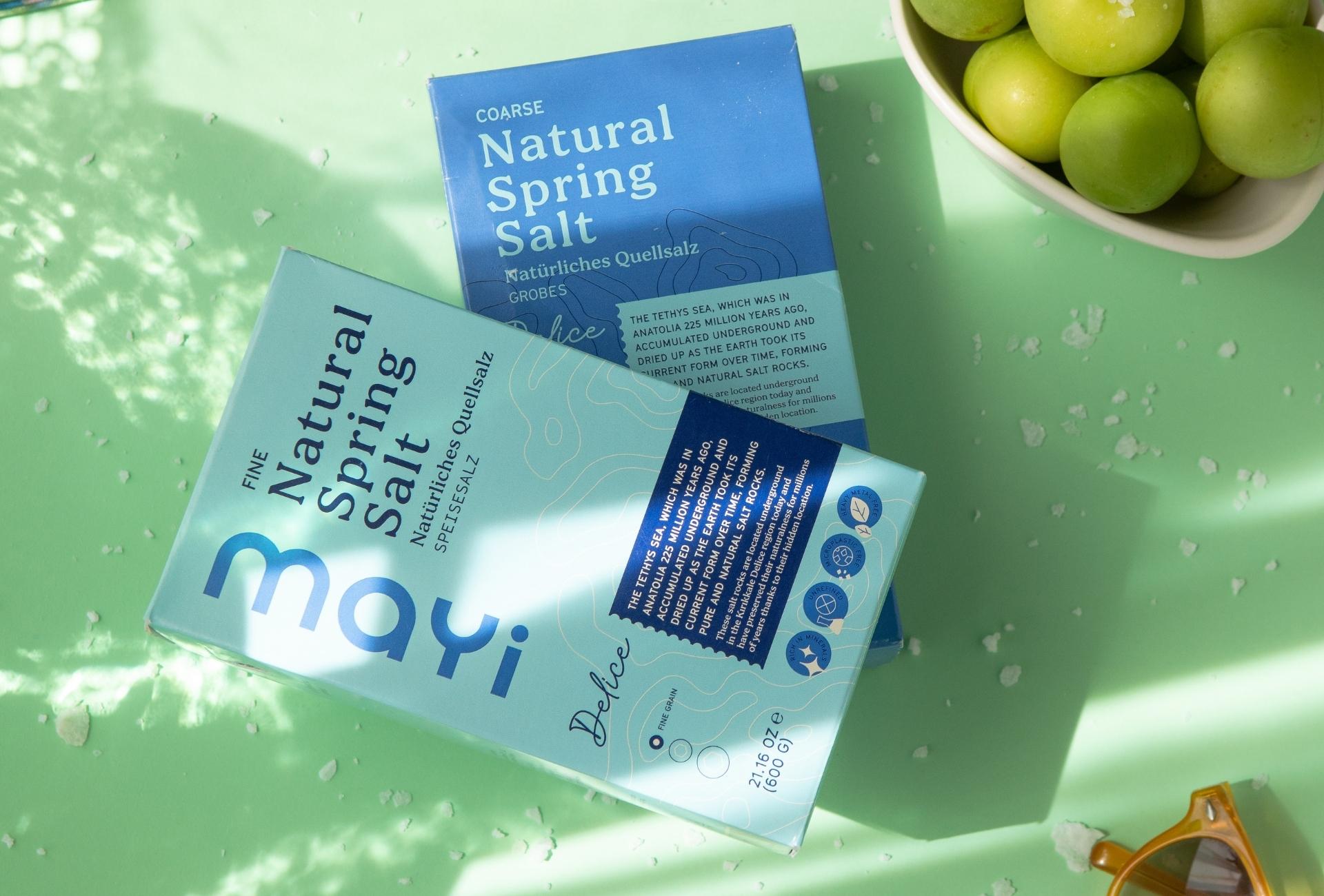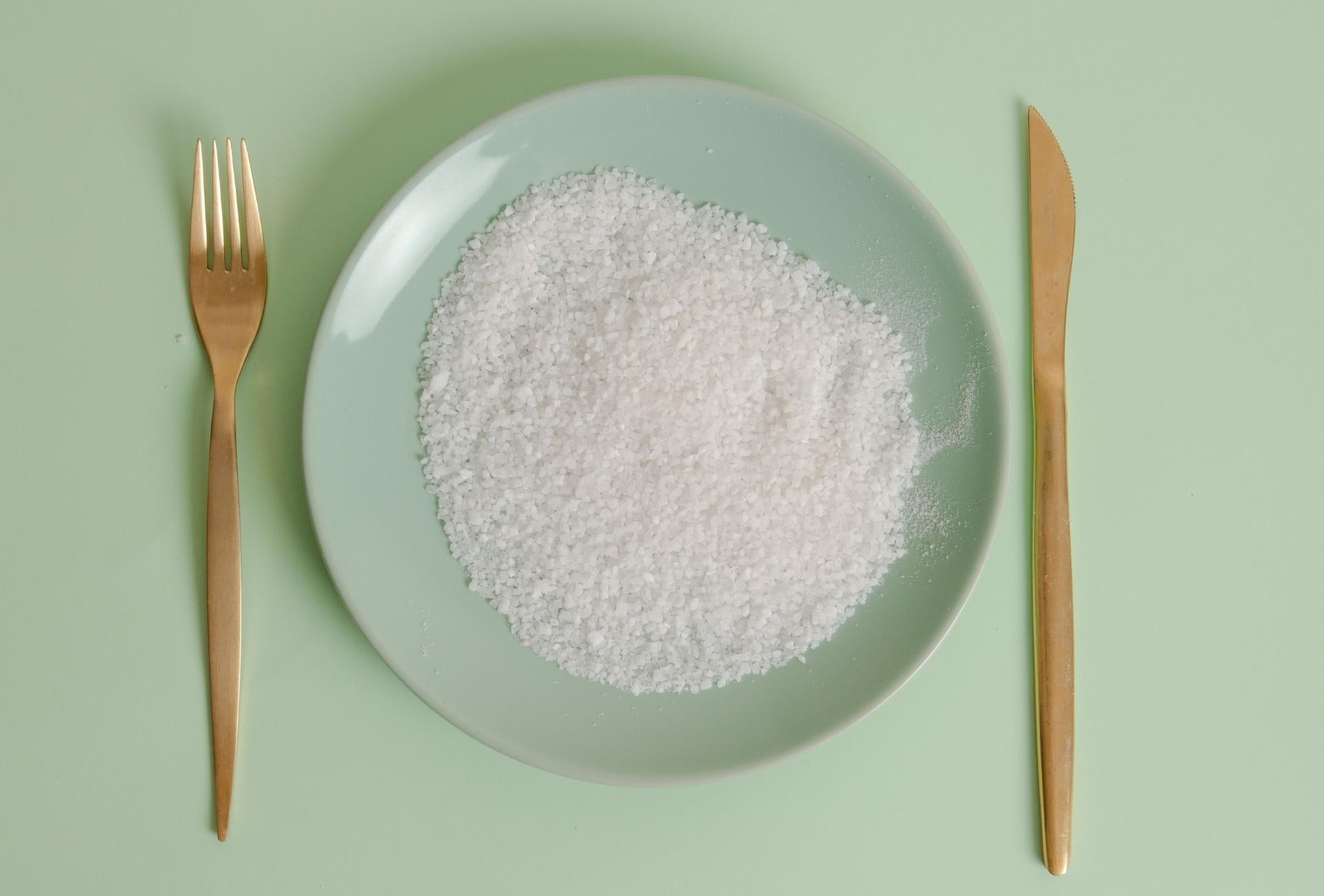Kosher salt is a type of halal salt. It is produced in accordance with the religious laws of Jews. Therefore, kosher salt does not contain any additives in the production process. Kosher salt is used in food preparation. It is especially used in the koshering process of Jews. This process is the marination of meats. Normal salts lose their ability to absorb moisture due to various processes altering their structure. Since no chemicals are added to kosher salt, it naturally retains its ability to absorb moisture. Therefore, it is often preferred in marination processes. Additionally, it has large grains. Fine salts are not preferred in marination processes because they have reduced moisture-absorbing properties. Therefore, kosher salt is wonderful for this process.
Why do they call it kosher salt?
Kosher salt has larger grains compared to regular table salt. It has not been chemically added to or processed, thus maintaining a natural salt flavor.
Salts typically have a natural ability to absorb moisture. However, modern salts undergo various chemical processes to prevent clumping. As a result, they lose their ability to absorb moisture, leading to ineffective marination processes.
Kosher salt proves to be quite useful in this regard. It is particularly used by Jews in the process of removing blood from meat, known as koshering. The name 'kosher salt' originates from this process.
Why do chefs use kosher salt?
Jewish salt, commonly known as kosher salt, is often used in traditional Jewish cuisine for its unique texture and culinary properties. Kosher salt is preferred in homes and restaurants for its delicious and healthy qualities. Other reasons for its preference include:
- Kosher flake salt has large grains, making it a preferred finishing salt by chefs. It is used to sprinkle over dishes after they are prepared.
- Since it is unprocessed, kosher salt retains a natural and healthy salt flavor, adding to its appeal.
- Kosher salt does not contain iodine. Some chefs believe that iodine can alter the taste of dishes. Therefore, it is preferred by chefs for not containing iodine.
What is so special about kosher salt?
Kosher salt is a type of salt used in the koshering process. Other reasons that make kosher salt special include:
- It has larger grains compared to table salt, making it suitable for the process of drawing out moisture.
- Kosher salt is preferred by baristas for certain kitchen applications such as rimming cocktail glass edges.
- Kosher salt does not contain additives. Its natural composition makes it a preferred choice for making brines or pickling solutions.

Is kosher salt good for you
Kosher salt, similar to all salts, is mainly comprised of sodium chloride and doesn't provide significant nutritional advantages. Nevertheless, sodium is a vital element essential for diverse bodily functions such as maintaining fluid equilibrium, transmitting nerve impulses, and bolstering muscle functionality.
Excessive intake of salt, including kosher salt, can lead to detrimental health consequences like elevated blood pressure and heightened risks of cardiovascular ailments such as heart disease and strokes. Hence, it's crucial to employ kosher salt, or any salt, in moderation.
Although kosher salt lacks iodine or anti-caking additives found in certain table salts and undergoes minimal processing, its health merits hinge largely upon its application within the framework of a well-balanced diet.
In summary, while kosher salt can be included in a balanced diet when utilized in moderation, excessive consumption of any salt variant should be circumvented for optimal health.
Is kosher salt healthy
Define kosher salt as a coarse-grained salt without any additives, commonly used in cooking and food preparation due to its ability to dissolve easily and evenly season dishes. Unlike refined salts, kosher salt is beneficial for health as it does not contain additives or anti-caking agents.
Refining processes strip salts of their minerals, leaving only the main components of sodium chloride. Kosher salt, on the other hand, retains its minerals as it does not undergo refining. This makes it a preferred choice for those adopting a healthy lifestyle.
What are the Benefits of Kosher Salt
Salts naturally have the ability to absorb moisture in their natural form. However, refined salts lose this ability. This can lead to unwanted results in pickling and brining processes. Kosher salt, on the other hand, retains its moisture-absorbing properties as it is not subjected to the refining process. It is an excellent choice for pickling meat and fish. The benefits of kosher salt include its ability to enhance flavors and its ease of use in seasoning dishes precisely.
Are there other options?
When kosher salt is unavailable, the closest alternative would be natural source salt. In fact, it might even provide you with much more benefits than kosher salt!
Mayi Salt" is a mineral-rich natural source salt formed by the evaporation of hot water from a fracture, dissolving underground salt rocks and gathering red earth minerals as it surfaces. It's notably different from traditional table salt as it is a rich source of 84 different minerals, invaluable for health. Mayi Salt emerges from underground in liquid form and is produced without any refining processes, solely dried in sunlit, hygienic greenhouse pools using natural methods. Hence, with its coarse grains, Mayi Salt can serve as an effective alternative to kosher salt. Like kosher salt, Mayi Salt is also unprocessed, thereby rich in minerals.




